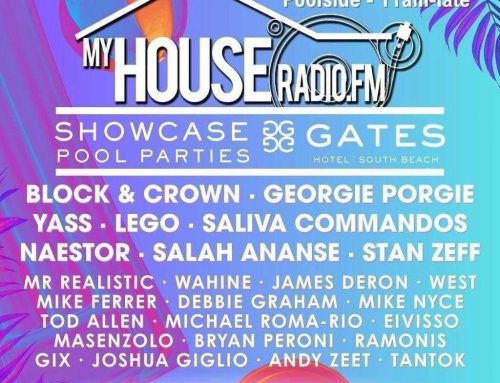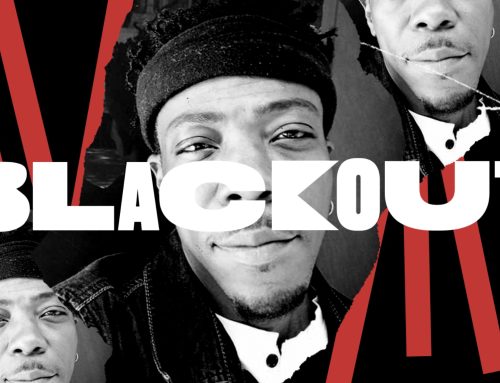Everyone loves smooth transitions, but they aren’t always the be-all and end-all of a good set
As we’re enjoying the sunset at a festival in the Caribbean, Ricardo Villalobos is launching into a vinyl set consisting of his signature blend of minimal house and techno. There’s only been a few transitions when suddenly the needle jumps, leaving the mix slightly askew. With vinyl this can happen, but it’s none the less unpleasant. The crowd cringes at being thrown off the groove, but almost instantaneously the artist is able to pull the mix back together to deliver a smooth blend, inciting shouts of praise that ring out from attentive revelers. Backstage, while we’re chatting to m.O.N.R.O.E, he says: “Hey, sometimes it’s not how you fuck up, it’s how you make it up.” Is this be true? Or does a DJ set have to be perfect?
Villalobos is a magician behind the decks. During this festival set, he moves so freely that you think a trainwreck could be right around the corner at any moment, yet he brilliantly pulls it all back together to deliver an astounding display of captivating and rhythm-focused dance music. Plus, much of the music he plays, we’ve never heard before. He’s going through tracks both old and new, taking the crowd on a sonic excursion. Me and some friends try to Shazam a few tunes only to be left with a blaring blue screen, and we like it better that way. We’re dancing as hard as we’ve ever danced. With this in mind, the notion of perfection becomes completely overrated. It’s about the experience as a whole that makes a DJ set great, right?
Some DJs and fans might disagree here. A crucial component to a DJ set is smooth transitions. In a recent conversation with The Black Madonna for Mixmag’s On Rotation podcast, we asked her what her thoughts were on beat-matching. She explained that if someone is getting paid to be behind the decks, they should have the necessary tools in their arsenal to pull off clean mixes.
“I believe that if you’re being paid to do this then you should excel at all aspects of it, and I don’t mean that to sound snobby,” she said. “I never had the option of choosing between selection and being technical. The idea that one can take the place of another, I do understand that intellectually, and if that’s how someone feels I don’t have any need to disagree with it. But for me personally, excellence across the board was not something that was debatable for me.”
It’s understandable that if a DJ is getting paid top dollar they must possess the necessary skills to mix cleanly, but when taking a judgmental approach, there’s much more to DJ set than beat matching. The music is the focus and the star of the experience, and taking risks can disrupt the cleanliness of a blend. These risks yield a DJ set that’s raw and real. For Rush Hour boss Antal, an artist who delivers an eclectic collection of music with each performance, the technical aspect is obviously important, but rather than dwelling on perfect mixes, track selection takes the lead.
“Technique has always been important in Amsterdam,” he says. “If a DJ made two trainwrecks in a night, people would talk about it. But now I think I don’t care so much. I like it when all the mixes are smooth, but if it’s not smooth I also realise it can say a lot about what kind of decisions I’m making. And sometimes if I’m experimenting and improvising a lot, then I cannot expect all my mixes to go right. Track selection is really important. If I play only house at a certain tempo and I’m doing it through rekordbox, it’s hard to get it wrong. I remember, people would write all the BPMs on their records, but I never went that far. I really don’t want to care about it. And then if I make a mistake, whatever.”
What many people love about Antal’s DJ sets is the improvisation, free flow and unique track selection. These are the aspects that have made him one of the top tastemakers in house, funk, disco and various world styles in recent history. His ability to dig deep into the past, while also being in-tune with the future, has earned him great respect around the industry. His beat matching ability isn’t necessarily his calling card.
On a similar note, legendary DJ and producer John Digweed has touched on how the ability to perform a seamless mix is only half the battle: “Beat matching is only part of being a DJ, track selection and the ability to read the crowd are just as, if not more, important.”
The best DJs in the world have the complete package, they can beat match, their track selection is brilliant and they know how to build and release tension to get the crowd engaged. Some skills can be learned, but track selection seems to be one that’s refined and unique to an individual, it reveals who an artist truly is.
>> https://mixmag.net/feature/does-a-dj-set-have-to-be-perfect/2





